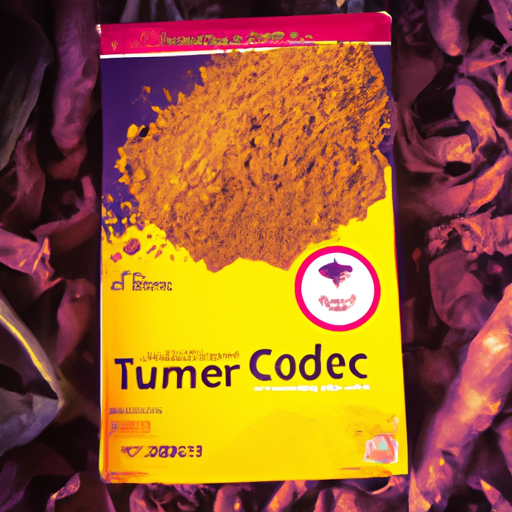Lately, there’s been quite a buzz about the health advantages of turmeric, sparking my interest. Research suggests that this spice possesses anti-inflammatory qualities and may aid in digestion, improve skin conditions, and enhance cognitive abilities. Eager to add it to my everyday regimen, I found myself unsure of how to begin.
That’s when I discovered turmeric tea bags. Turmeric tea is an easy and delicious way to enjoy the benefits of this powerful spice without having to use it in cooking. However, finding turmeric tea bags can be challenging if you don’t know where to look.
In this article, I will share with you some insights on where you can buy turmeric tea bags so that you too can experience the many health benefits of this ancient root.
Key Takeaways
- Turmeric tea bags can be found at various locations including online retailers, health food stores, natural food co-ops, farmers markets, specialty tea shops, Indian grocery stores, and Asian markets.
- When choosing turmeric tea, it is important to read labels carefully to check for other ingredients and consider reviews and recommendations.
- Indian grocery stores offer a wide variety of high-quality turmeric tea bags and staff members can provide tips on traditional recipes and cooking techniques.
- Turmeric tea bags can also be easily made at home using empty tea bags or cheesecloth, turmeric powder, and other herbs or spices.
Benefits of Turmeric Tea
Turmeric tea is packed with antioxidants and anti-inflammatory properties, making it a great addition to your daily routine! Not only does turmeric have a vibrant color and delicious flavor, but it also boasts numerous health benefits.
One of the most significant advantages of drinking turmeric tea is its anti-inflammatory properties. Curcumin, the active ingredient in turmeric, has been shown to reduce inflammation in the body which can lead to improved joint health and reduced risk of chronic diseases.
Another benefit of turmeric tea is that it can boost your immune system. The antioxidants found in turmeric help to protect your cells from damage caused by free radicals, which are unstable molecules that can harm healthy cells. Additionally, curcumin has been linked to improving brain function and reducing the risk of heart disease.
If you’re looking for an easy way to incorporate turmeric into your diet, consider trying turmeric tea bags. There are many online retailers that offer a variety of options including organic and non-organic varieties. By adding a cup or two of turmeric tea into your daily routine, you can reap the many health benefits this powerful spice has to offer.
Online Retailers
You’re probably already aware of the many benefits of this popular spice, and if you want to easily incorporate it into your diet, there are plenty of online retailers that offer convenient options. Here are some top brands and best prices for turmeric tea bags:
-
Buddha Teas – This brand offers organic turmeric tea bags that are free from artificial flavorings and preservatives. Their products undergo a strict quality control process to ensure that each bag provides maximum health benefits.
-
Traditional Medicinals – Known for their herbal teas, Traditional Medicinals also has a great selection of turmeric blends in tea bag form. They use fair trade ingredients and sustainable practices in all their products.
-
Harney & Sons – Although not exclusively known for their turmeric teas, Harney & Sons offer a delicious blend of turmeric and ginger in pyramid sachets that make brewing easy and mess-free.
Reviews and recommendations are helpful when finding the perfect turmeric tea blend online. Look out for comments on taste, potency, and overall experience with the product before making your purchase.
When it comes to buying turmeric tea bags online, there’s no shortage of options. However, sometimes it’s nice to see the product in person before committing to a purchase.
In the next section about health food stores, I’ll share some tips on where to find high-quality turmeric tea bags offline as well.
Health Food Stores
If you’re looking for a cozy and inviting health food store to explore, head over to your local organic market or natural foods shop. These types of stores usually carry a variety of turmeric tea blends, which are becoming increasingly popular due to their numerous health benefits. Turmeric is known to have anti-inflammatory properties and can help boost the immune system, making it an excellent addition to any diet.
When shopping for turmeric tea bags at a health food store, it’s important to read the labels carefully. Some blends may contain other ingredients such as ginger or black pepper, which can enhance the flavor and increase the absorption of curcumin (the active ingredient in turmeric). Additionally, there are different types of turmeric tea blends available, including traditional Indian chai-style blends and more modern variations with added flavors like vanilla or coconut.
Overall, visiting a health food store is an excellent way to discover new turmeric tea blends and learn about their many benefits. Whether you’re looking for a warm cup of relaxation in the evening or want to add some extra spice to your morning routine, there’s sure to be a blend that suits your taste buds and nutritional needs. With so many options available, experimenting with different varieties can be an enjoyable way to incorporate this powerful herb into your daily life.
Looking for even more options? Consider checking out natural food co-ops where you can find a wider selection of organic products.
Natural Food Co-ops
Visiting a natural food co-op is an excellent way to discover a wider range of organic products and support local farmers. These co-ops are community-owned and operated, which means that the profits go back into supporting the community. The focus is on sustainability, so you can feel good about buying products that aren’t harmful to the environment.
If you’re looking for turmeric tea bags, natural food co-ops are an excellent place to start. Here’s why:
- Most natural food co-ops have a wide variety of teas available, including specialty blends like turmeric tea.
- Supporting your local co-op helps keep small-scale farmers in business by providing them with a market for their goods.
- You’ll be able to find other organic products at the same time, making it easy to stock up on all your healthy essentials in one place.
In addition to being great places to buy groceries and specialty products like turmeric tea bags, natural food co-ops often host events and workshops focused on health and wellness. Keep an eye out for classes on cooking with herbs or learning how to make your own herbal teas.
Now, let’s talk about another option: farmers markets.
Farmers Markets
Get ready to experience the vibrant atmosphere and fresh produce at your local farmers market. These markets are a great place to find turmeric tea bags as well.
Local availability may vary depending on the season, but farmers markets often have vendors selling various herbs and spices, including turmeric. Not only can you find unique blends of turmeric tea, but you can also support small businesses and local farmers by purchasing from them.
When looking for turmeric tea bags at the farmers market, it’s important to compare prices with other options such as specialty tea shops or online retailers. While some vendors may have higher prices due to their organic or handmade products, others may offer more affordable options that still meet your needs. It’s always a good idea to shop around and compare prices before making a purchase.
If you’re not able to find what you’re looking for at the farmers market, don’t worry! The next step in your search for turmeric tea bags is exploring specialty tea shops in your area.
Specialty Tea Shops
For a truly unique tea experience, head to your local specialty tea shop where you can explore a variety of blends and flavors beyond what you might find at the grocery store. These shops offer an extensive selection of high-quality teas that are often sourced from all over the world. Not only do they have loose leaf options, but many also carry turmeric tea bags for those who prefer the convenience of pre-packaged teas.
In addition to their wide range of tea blends, specialty tea shops also offer various accessories to enhance your brewing experience. From infusers to teapots and even specialized mugs, these shops have everything you need to make the perfect cup of turmeric tea. Some stores even hold workshops or tasting events where you can learn more about how different flavors and brewing methods can affect the taste of your tea.
If you’re unsure where to start when it comes to choosing a blend or finding the right accessories, don’t be afraid to ask for help from the staff at your local specialty tea shop. They’re often knowledgeable about their products and can recommend something based on your personal preferences. With so many options available at these stores, it’s easy to see why they’re a great place to buy turmeric tea bags and other premium teas.
When it comes to buying turmeric tea bags specifically, another option is Indian grocery stores which may carry a wider selection than regular grocery stores.
Indian Grocery Stores
Walking into an Indian grocery store is like stepping into a vibrant and bustling marketplace, filled with bright colors, exotic scents, and the promise of discovering unique ingredients to incorporate into your culinary creations. As someone who loves to experiment with different spice blends and cooking techniques, I’m always excited to explore the aisles of my local Indian market.
Not only can you find fresh produce and pantry staples at great prices, but you can also discover a wide variety of specialty items like turmeric tea bags.
One thing I love about shopping for turmeric tea bags at an Indian grocery store is that there are so many options available. You can find everything from basic turmeric tea bags to more complex blends that include other herbs and spices like ginger or cardamom. Plus, because Indian markets tend to cater specifically to South Asian tastes and preferences, you know that the quality of the products will be top-notch.
If you’re new to cooking with turmeric or just looking for some inspiration on how to use it in your meals, don’t hesitate to ask one of the knowledgeable staff members at your local Indian grocery store. They may have tips on traditional recipes or cooking techniques that you’ve never tried before.
And if you’re feeling adventurous, why not pick up a few other ingredients while you’re there? Who knows what new flavor combinations you might discover! With all these amazing options available at an Indian grocery store, it’s no wonder that they’re such a popular destination for foodies and home cooks alike.
Now let’s move on to our next stop: Asian markets.
Asian Markets
Moving on from Indian Grocery Stores, another great option to buy turmeric tea bags is Asian markets. These markets offer a wide variety of products and ingredients that cater to the Asian cuisine. It’s always fascinating to explore these markets because they give me an opportunity to learn about new spices, herbs, and traditional recipes that I’ve never heard of before.
When it comes to turmeric tea bags, Asian markets have a lot to offer. Here are some items you can expect to find:
- A variety of turmeric blends including ginger-turmeric blend, lemongrass-turmeric blend, and honey-turmeric blend.
- Authentic Indian brands like Taj Mahal Tea House and Society Tea.
- Organic and fair-trade turmeric tea bags that are sourced directly from small-scale farmers in Asia.
In addition to being delicious, turmeric tea has cultural significance in many parts of Asia. It has been used for centuries as a natural remedy for various ailments like sore throat, colds, digestion problems, and more. Incorporating this beverage into your daily routine not only adds flavor but also brings the health benefits associated with it.
With all these options available at Asian markets, finding high-quality turmeric tea bags is easy. However, if you want personalized recommendations or want to learn more about the benefits of drinking turmeric tea from a health perspective, then herbalists or naturopaths might be able to help you out.
Herbalists and naturopaths have extensive knowledge about medicinal plants and their effects on the human body. In the next section, we’ll discuss how they can assist you in finding the best quality turmeric tea bags for your specific health needs without having to break the bank!
Herbalists and Naturopaths
If you’re interested in using turmeric tea as a naturopathic remedy, consulting with an herbalist or naturopath can provide valuable insight. These professionals have studied traditional medicine techniques and can offer personalized guidance specific to your needs. They may recommend certain preparations of turmeric tea based on your individual health concerns.
Herbalists and naturopaths are experts in natural remedies and alternative approaches to medicine. They can help you understand the different ways that turmeric tea can benefit your health, such as reducing inflammation, boosting immune function, and improving digestion. They may also suggest other herbs or supplements to complement the effects of turmeric.
By working with an herbalist or naturopath, you can gain a deeper understanding of how turmeric tea fits into your overall wellness plan. They can guide you through making informed choices about the type of tea to use, the amount to consume, and any precautions to take based on your medical history. With their expertise and support, you’ll be better equipped to reap the full benefits of this powerful herb.
If you’re not quite ready for a consultation with an expert yet but would still like to try making turmeric tea at home, there are many DIY recipes available online.
DIY Turmeric Tea Bag Recipes
You may want to consider creating your own homemade tea pouches filled with a powerful and vibrant spice that can offer numerous health benefits. Turmeric is known for its anti-inflammatory properties, which can help reduce pain and swelling in the body. It’s also rich in antioxidants, which can protect your cells from damage caused by free radicals.
Making your own turmeric tea bags is easy and affordable. All you need are some empty tea bags or cheesecloth, turmeric powder, and any other herbs or spices you’d like to add for flavor. Simply mix the ingredients together in a bowl, spoon them into the tea bags or cheesecloth, tie them up securely, and steep in hot water for 5-10 minutes.
Here’s an easy recipe to get you started: Mix 1 teaspoon of ground turmeric, 1 teaspoon of honey (optional), 1/2 teaspoon of ground ginger, and a pinch of black pepper in a bowl. Spoon the mixture into an empty tea bag or cheesecloth and tie it up securely. Steep in hot water for 5-10 minutes.
This delicious blend will not only warm you up on a chilly day but also provide many health benefits thanks to its anti-inflammatory properties!
Frequently Asked Questions
What is the recommended daily intake of turmeric tea?
To answer the question of what’s the recommended daily intake of turmeric tea, it’s important to understand its health benefits and duration.
Turmeric tea is known for its anti-inflammatory properties, which can help reduce joint pain and inflammation in the body. Some studies have also shown that it may improve brain function and lower the risk of heart disease.
As for daily intake recommendations, experts suggest drinking 1-2 cups per day to reap these benefits. It’s important to note that consuming too much turmeric may cause stomach upset or other adverse effects, so sticking to the recommended amount is best.
To fully experience the benefits of turmeric tea, it’s recommended to drink it consistently for at least a few weeks or more.
Can turmeric tea be consumed during pregnancy?
According to a study published in the Journal of Alternative and Complementary Medicine, turmeric tea has been found to have numerous health benefits, such as reducing inflammation, improving digestion, and boosting immunity. However, safety concerns for pregnant women have been raised due to its potential to stimulate the uterus and cause contractions.
It’s always best to consult with your healthcare provider before consuming any herbal teas during pregnancy. While turmeric tea may be safe for some pregnant women in moderation, it’s important to be cautious and avoid excessive consumption.
In addition, it’s recommended that pregnant women only consume high-quality turmeric tea from reputable sources.
How long does it take for turmeric tea to show its health benefits?
When it comes to the effectiveness timeline of turmeric tea, it can vary depending on the person and their health condition. Some people may start to see improvements in their overall well-being within a few days, while others may take several weeks or even months.
It’s important to note that consistency is key when it comes to consuming turmeric tea and reaping its benefits. As for optimal dosage, 1-2 teaspoons of ground turmeric per day is generally recommended. However, it’s always best to consult with a healthcare provider before incorporating any new supplements or herbs into your diet.
Are there any potential side effects of consuming turmeric tea?
As someone who regularly enjoys turmeric tea, I must say that it’s generally safe to consume. However, there are potential risks and interactions to consider.
Firstly, consuming large amounts of turmeric can lead to stomach upset and even ulcers in some cases. It’s important to stick to the recommended dosage and frequency, which varies depending on factors such as age and health status.
Additionally, turmeric has blood-thinning properties which can interact with certain medications like anticoagulants or antiplatelets. Therefore, it’s crucial to speak with a healthcare professional before incorporating turmeric tea into your routine if you’re taking any medication or have a pre-existing condition.
While it’s tempting to stock up on turmeric tea bags online or at health food stores, always prioritize your health and safety first by consulting with a doctor or qualified healthcare provider before adding anything new to your diet.
Is it safe to consume turmeric tea if I am taking certain medications or supplements?
When it comes to consuming turmeric tea, it’s important to be aware of any potential interactions with medications or supplements. Turmeric can interact with certain drugs, such as blood thinners and diabetes medication, so it’s crucial to speak with a healthcare professional before adding turmeric tea to your routine.
Additionally, there may be contraindications for individuals with certain health conditions, such as gallbladder issues or acid reflux. It’s always best to consult with a healthcare provider before incorporating any new herbal remedies into your diet.
By taking these precautions and being proactive about potential interactions and contraindications, you can safely enjoy the benefits of turmeric tea without putting your health at risk.
Conclusion
So there you have it, folks! Turmeric tea is a delicious and healthy beverage that provides numerous health benefits. Whether you’re looking to improve your digestion, reduce inflammation, or boost your immune system, turmeric tea may be just what you need.
If you’re wondering where to buy turmeric tea bags, there are plenty of options available. Online retailers like Amazon and Etsy offer a wide range of brands and flavors to choose from. Health food stores, natural food co-ops, farmers markets, Indian grocery stores, Asian markets, herbalists, and naturopaths are also great places to look for high-quality turmeric tea.
In fact, according to a recent survey by the Natural Marketing Institute (NMI), sales of herbal teas in the United States have been steadily increasing over the past few years. In 2020 alone, the herbal tea market was valued at $4.2 billion dollars! This statistic highlights just how popular and beneficial herbal teas like turmeric tea have become in our society today.
So whether you decide to purchase pre-made turmeric tea bags or make your own DIY versions at home, incorporating this powerful spice into your daily routine can provide countless health benefits for both your body and mind. Cheers to good health and happy sipping!









